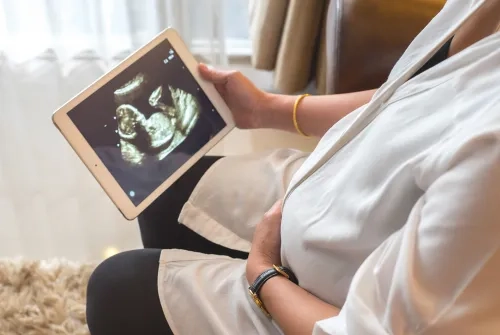Alo Yeditepe
Alo Yeditepe
Intrauterine insemination (IUI)
Insemination is based on the hypothesis that chance of conception is enhanced by increasing number of motile sperms for fertilization; or in other words, intrauterine insemination (IUI) can be defined as injecting pre-treated sperm into uterine cavity at a time close to the ovulation. This procedure can be combined with ovarian stimulation or it can be performed in a natural cycle.
What are Indications of Intrauterine Insemination?
Indications of intrauterine insemination are idiopathic (unexplained) infertility, cervical factor, mild to moderate male factor, Grade I-II endometriosis and male infertility, such as ejaculatory dysfunction, sexual dysfunction and impotence, as well as severe vaginismus. Moreover, intrauterine insemination can be preferred to reduce risk of viral infections, such as HIV. It is generally a good option for couples younger than 40 who have sperm parameters within normal ranges and at least one patent Fallopian tube.
How Is Intrauterine Insemination Performed?
If no contraindication is detected in the ultrasound scan on 2nd or 3rd day of the menstrual cycle, oocyte maturation is supported through oral tablets or low-dose medicines for injection. Ovulation is induced, when one to three follicles reach appropriate size (17-20 mm). The procedure is performed 34 to 37 hours after the induction. It is wise to cancel the procedure in case of more than 3 follicles due to risks of multiple pregnancy for mother and newborn infant. Sperm specimen is collected in the procedure or cryopreserved sperms are thawed and sperms are washed in the laboratory. Sperms with better motility and morphology are selected and prepared at a concentration of 0.5 to 1 cc. Next, a thin catheter is gently advanced through the cervical canal and sperms are allowed to reach uterus just at the time of ovulation. Patients may resume their daily routine after the procedure. A pregnancy test is analyzed 12 to 14 days after the IUI.
Which Methods Increase Success in Intrauterine Insemination?
Chance of pregnancy after IUI is 10 to 20 percent. The chance varies depending on age of woman, time since onset of infertility, sperm count and ovarian reserve. Studies demonstrate that excluding couples with male factor, doing IUI twice in the same cycle does not increase pregnancy rates. It is also reported that pregnancy rates are higher in first two to three attempts and that no significant increase in success rate is gained in subsequent attempts.
What Should Be Taken Into Consideration To Select A Center for Intrauterine Insemination?
When a center is selected for intrauterine insemination or in vitro fertilization, one should strictly verify that the center is licensed by Ministry of Health. Moreover, success rates, equipment and experience of the team are pretty crucial.
How About Cost of Intrauterine Insemination?
Cost of in vitro fertilization therapies varies for each couple. Since our facility is a foundation university, we can offer some advantages. Please contact us for detailed information.
This content was prepared by Yeditepe University Hospitals Medical Editorial Board.
”
See Also
- What is Whooping Cough? The Importance of Whooping Cough Vaccination During Pregnancy
- Contraceptive Methods: Birth Control and Effective Protection Options
- What is Ovarian Reserve?
- Uterine Polyps, Symptoms and Treatment
- Genetic Diagnosis in IVF Treatment
- What Happens at 3rd Weeks of Pregnancy?
- What Happens at 2nd Week of Pregnancy?
- What is Endometriosis? What are the Symptoms of Endometriosis?
- What is Hormone Replacement Therapy (HRT)? How is HRT Performed?
- Hormonal Disorder Symptoms and Treatment
- What is Ureaplasma? How is Ureaplasma Treatment Done?
- What is Pelvic Floor? What are Their Duties?
- The Most Common Diseases in Women
- What is Hysteroscopy? Hysteroscopy Usage Areas
- What is Myoma? Myoma Symptoms and Treatment
- Early Menopause and Ovarian Failure Can Be Prevented
- What is Laparoscopic Surgery in Gynecology?
- Menopause Symptoms and Menopause Treatment
- Polycystic Ovary Syndrome and its Treatment
- Electromagnetic Stimulation in the Treatment of Endometriosis and Infertility
- How Does Working Life Affect Prospective Mothers?
- Causes of Female Infertility
- The Use of Non-Inpatient Closed Surgery is Increasing in Gynecological Diseases
- Chronic Pelvic Pain
- What is Polycystic Ovary Syndrome/PCOS?
- Postpartum Period
- 7 Effective Tips Against Urinary Incontinence
- Sperm Will Be Produced from Stem Cells Soon
- What is Menopause? When Does Menopause Age Begin? What are the Symptoms of Menopause?
- The Chance of Becoming a Father Increases with Microchip Technology
- Thanks to the Ovarian Rejuvenation Method, She Counts the Days for Birth!
- Tests That Need to Be Performed During Pregnancy
- Which Tests Should Expectant Mothers Not Neglect? What Tests Should Be Done While Pregnant?
- Some Patients Go Through Menopause Even at the Age of 15
- Stress Disrupts the Menstrual Cycle
- Myomas Can Grow During Pregnancy
- Useful Bacteria Increases IVF Success
- Polycystic Ovary Syndrome Can Occur If the Bacteria in the Gut Are Not Functioning Well
- Imaging Methods During Pregnancy
- After 16 Years, She Wanted to Be a Mother Again; She Experienced the Shock of Her Life
- These Diseases Affect Women Differently Than Men
- Beware of Chocolate Cyst! It Affects 1 in 10 Women
- Causes of Male Factor Infertility
- The Effect of Advanced Age on IVF Treatment
- Infertility
- Polycystic Ovary Syndrome
- Early Menopause
- Blocked Fallopian Tube
- Vaginismus
- Low Ovarian Reserve (AMH)
- Which Methods Increase Success in Treatment of Infertility?
- Microinjection
- Egg Cryopreservation
- Assisted Hatching
- Micro-chip
- Pre-implantation Genetic Diagnosis
- Thyroid Diseases During Pregnancy Affect the Baby as Much as the Mother
- Urinary Tract Infections Can Be A Sign Of Menopause
- 10 Overlooked Signs of Menopause
- Endometriosis
- Co-Culture
- Ovarian Rejuvenation / PRP
- As Average Life Expectancy Increases, This Problem Will Be Seen More
- 'Early Age' Warning for Egg Freezing Procedure
- Beware, These Risks Increase After Menopause!
- This Problem Ruins the Lives of One in Every 10 Women
- Getting Cancer Treatment Does Not Stop You from Having Children!
- Prof. Dr. Attar: Endometriosis Can Be Associated With Some Chronic Diseases
- What Is the Period of Fertility? What Tests are Performed for Fertility?
- What Happens at 38 Weeks of Pregnancy?
- What Happens at 37 Weeks of Pregnancy?
- What Happens at 36 Weeks of Pregnancy?
- What Happens at 35 Weeks of Pregnancy?
- What Happens at 34 Weeks of Pregnancy?
- What Happens at 33 Weeks of Pregnancy?
- What Happens at 32 Weeks of Pregnancy?
- What Happens at 31 Weeks of Pregnancy?
- What Happens at 30 Weeks of Pregnancy?
- What Happens at 29 Weeks of Pregnancy?
- What Happens at 28 Weeks of Pregnancy?
- What Happens at 27 Weeks of Pregnancy?
- What Happens at 26 Weeks of Pregnancy?
- What Happens at 25 Weeks of Pregnancy?
- What Happens at 24 Weeks of Pregnancy?
- What Happens at 23 Weeks of Pregnancy?
- What Happens at 22 Weeks of Pregnancy?
- What Happens at 21 Weeks of Pregnancy?
- What Happens at 20 Weeks of Pregnancy?
- What Happens at 19 Weeks of Pregnancy?
- What Happens at 18 Weeks of Pregnancy?
- What Happens at 17 Weeks of Pregnancy?
- What Happens at 16 Weeks of Pregnancy?
- What Happens at 15 Weeks of Pregnancy?
- What Happens at 14 Weeks of Pregnancy?
- What Happens at 13 Weeks of Pregnancy?
- What Happens at 12 Weeks of Pregnancy?
- What Happens at 11 Weeks of Pregnancy?
- What Happens at 10 Weeks of Pregnancy?
- What Happens at 9 Weeks of Pregnancy?
- What Happens at 8 Weeks of Pregnancy?
- What Happens at 7 Weeks of Pregnancy?
- What Happens at 6 Weeks of Pregnancy?
- What Happens at 5 Weeks of Pregnancy?
- What Happens at 4 Weeks of Pregnancy?
- What Happens at 1st. Weeks of Pregnancy?
- Considerations for Embryo Transfer
- What Causes Menstrual Irregularity, How Is It Treated?
- Success in IVF after 43 Decreases to Five Percent
- Does Pregnant Coronaviruses Affect?
- Most Frequently Asked Questions During Pregnancy
- Untreated Genital Problems Can Cause Urinary Incontinence
- 1 in 10 Women Have This Problem; It Can Lead To Infertility
- Effective Results Can Be Achieved with PRP in Women with Low Egg Count
Alo Yeditepe










